KMT vets who fought Japanese are saluted
Updated: 2013-07-05 07:26
By An Baijie (China Daily)
|
||||||||
Wang Li said her father, Wang Zhongyi, a former Kuomintang soldier, died five years ago without seeing his longtime wish fulfilled.
"He had this wish that the government would recognize the contribution he and his fellow soldiers made to fighting for the Chinese people during the War of Resistance against Japanese Aggression (1937-45)," the 62-year-old said.
That day finally came when the Ministry of Civil Affairs issued a statement on its website on Wednesday night.
According to the statement, former KMT soldiers who fought in the war of resistance should be invited to attend celebrations of important anniversaries, regardless of whether they later joined the People's Liberation Army led by the Communist Party of China.
Former KMT soldiers who were injured or disabled in the war should also receive equal treatment of other former servicemen, it said.
They are entitled to the same social security as other citizens and local governments' provisions for veterans' welfare, the statement said.
The soldiers should also be given priority and preferential treatment in access to nursing homes, the ministry said.
Sun Chunlong, founder of Shenzhen Longyue Charity Foundation, which focuses on the welfare of former KMT soldiers who fought in the war of resistance, hailed the statement as "great progress".
The ministry recommends local governments invite former KMT soldiers to attend celebrations of important occasions, a gesture to recognize their contribution, Sun said.
The ministry statement came after a proposal submitted by Peter Wong Man Kong, Hong Kong deputy of the National People's Congress, who called on the civil affairs authority to improve treatment of former KMT veterans.
He said many of the KMT soldiers who made great contributions to protect the Chinese people during World War II now live in difficulty due to historical and political reasons.
During the War of Liberation (1946-49), the KMT forces were defeated by the People's Liberation Army led by the Communist Party of China. Some KMT soldiers went to Taiwan after the war, but many others stayed on the mainland.
The Regulation on Pensions and Preferential Treatment for Servicemen, enacted in 2004 and revised in 2011, did not mention former KMT soldiers who did not join the People's Liberation Army.
"Local governments should put forward more detailed measures to implement the ministry's requirement," said Wang.
"The government should not waste any more time on this issue, since the KMT soldiers are getting older day by day," she said.
"We should give them the fame and reputation they deserve before they pass away."
According to the Shenzhen Longyue Charity Foundation, which has tracked down about 2,000 former KMT soldiers nationwide, an estimated 10 percent of the total, most former KMT soldiers are older than 90, and many live in poor conditions.
The foundation managed to collect several million yuan in recent years, but that was not enough to cover the living costs of former KMT soldiers, Sun said.
Li Minghui, founder of laobing.com, a website about veterans' welfare, said that apart from former KMT soldiers, other veterans, such as those who fought in the Korean War, should also receive better treatment.
Li said improving the life of veterans will also encourage people now serving in the military and those to follow.
"Soldiers can only dedicate themselves to their country wholeheartedly when they believe that their country will treat them well after they retire," he said.
Shen Jiahui contributed to this story.
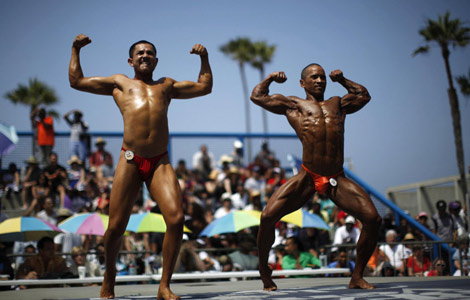
 Muscle Beach Independence Day
Muscle Beach Independence Day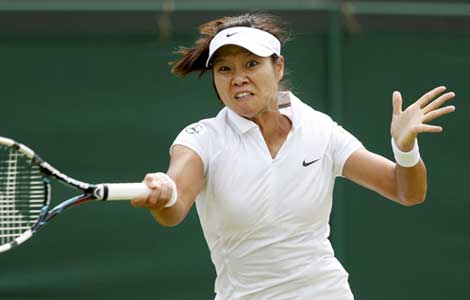
 Tough workout for Li Na in war of words
Tough workout for Li Na in war of words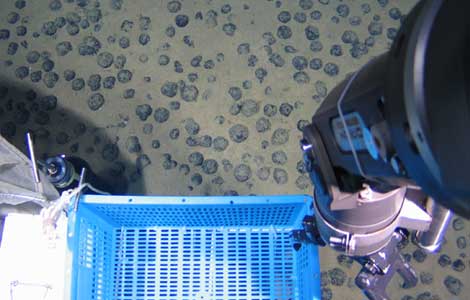
 Submersible taps mineral deposits in S China Sea
Submersible taps mineral deposits in S China Sea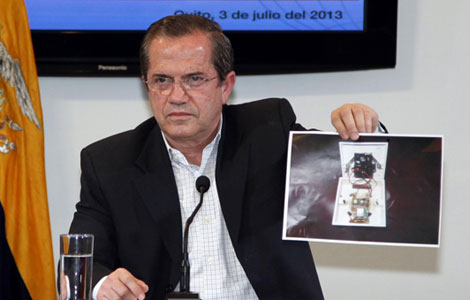
 Ecuador finds spy mic for Assange meeting
Ecuador finds spy mic for Assange meeting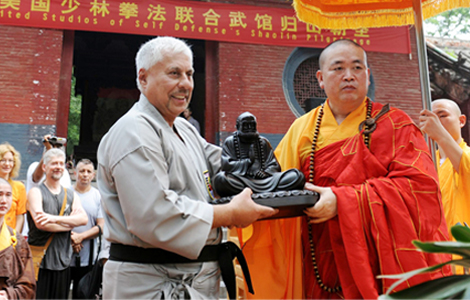
 US martial artists arrive at Shaolin Temple
US martial artists arrive at Shaolin Temple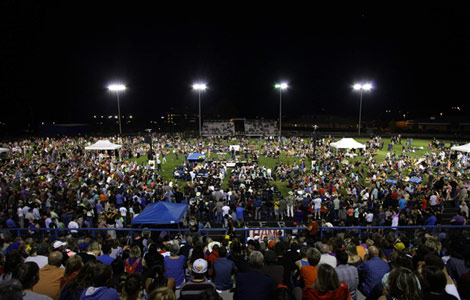
 July 4 in Prescott: Balance of grief, patriotism
July 4 in Prescott: Balance of grief, patriotism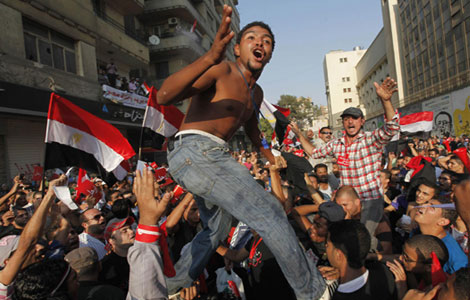
 Jubilant crowds celebrate after Mursi overthrown
Jubilant crowds celebrate after Mursi overthrown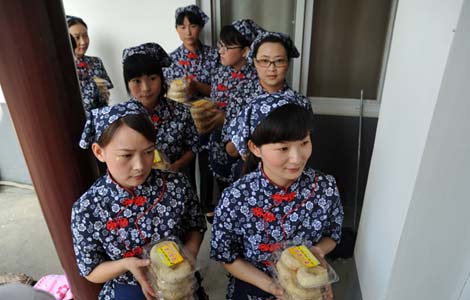
 Growth slowing for services
Growth slowing for services
Most Viewed
Editor's Picks

|

|

|

|

|

|
Today's Top News
Figures show shifts in US, China economies
Egypt's prosecution imposes travel ban on Morsi
Russia more impatient over Snowden's stay
Mandela still 'critical but stable'
Figures show shifts in US, China economies
Chinese electrician killed in Cambodia
EU and US set for free trade talks
China and Canada to form pact
US Weekly

|

|






